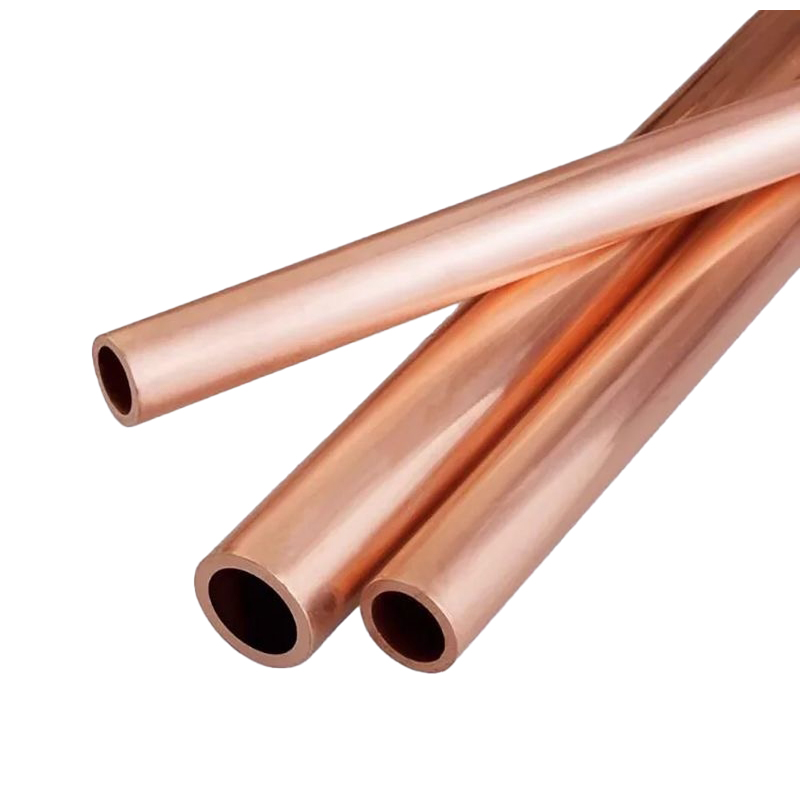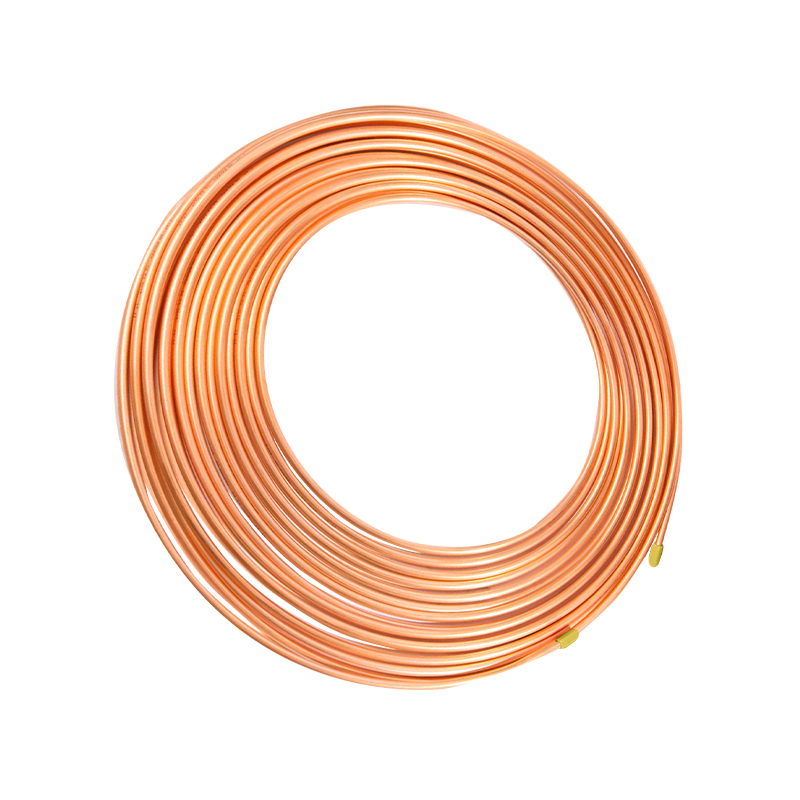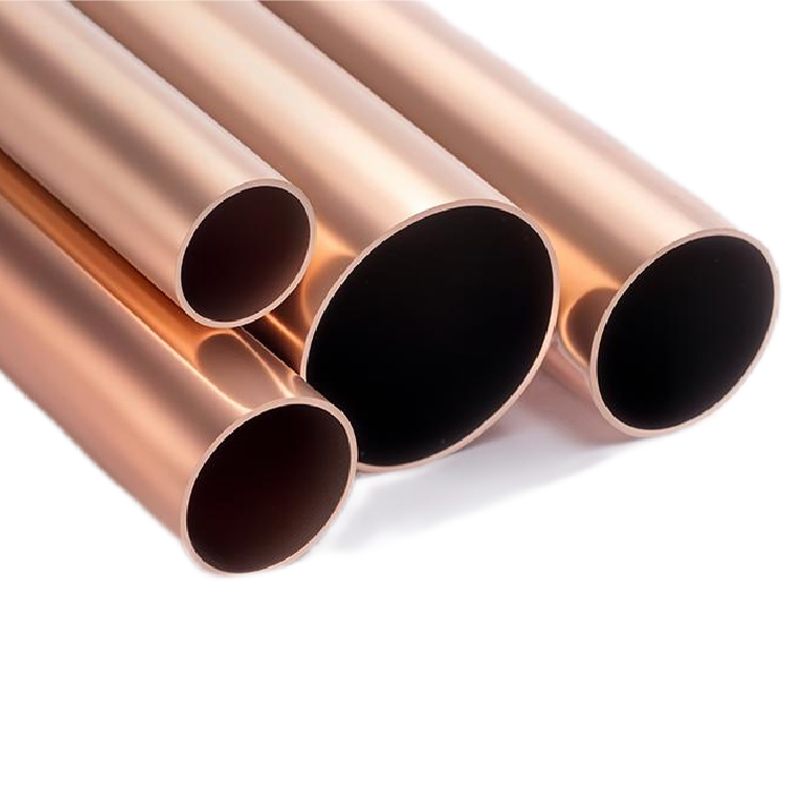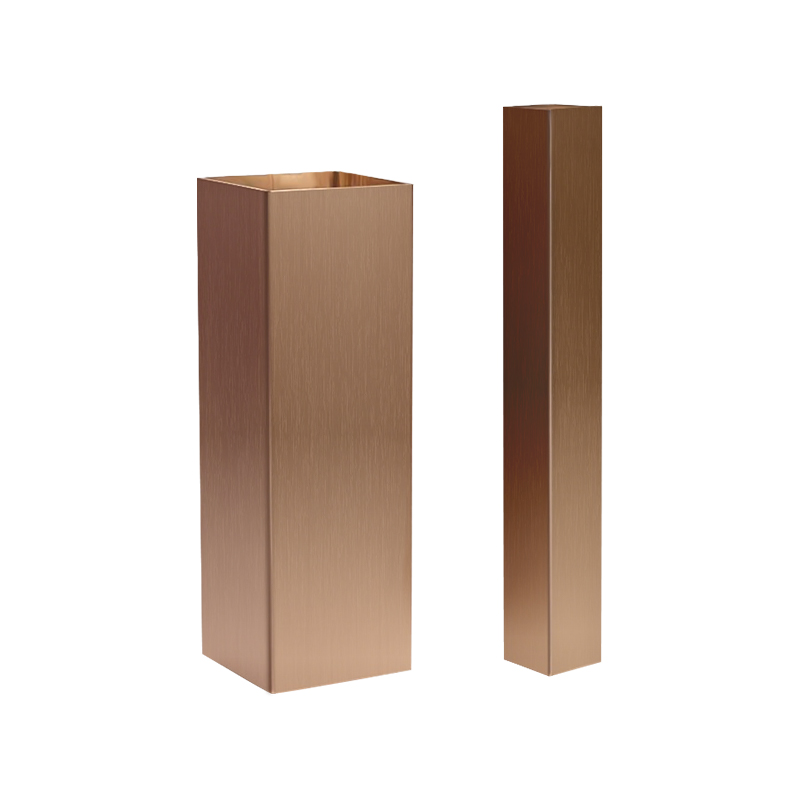
Why Condenser Copper Tubes Are the Preferred Choice for Heat Exchanger Applications
In the world of thermal management, whether in refrigeration, air conditioning, or industrial applications, the condenser copper tube remains the material of choice for efficient heat exchange systems. Copper has been used for centuries, and its role in modern heat exchangers is more important than ever. As demand for high-performance solutions grows, Copper Tube Manufacturers continue to provide high-quality copper tubes, ensuring reliable and effective heat transfer in a wide range of applications.
Exceptional Thermal Conductivity: A Key Advantage
One of the primary reasons copper is the preferred material for condenser tubes is its exceptional thermal conductivity. Copper has one of the highest thermal conductivities of any material, allowing it to transfer heat rapidly and efficiently. In heat exchanger applications, where the goal is to transfer heat between two fluids, this property is essential.
For instance, in HVAC systems and refrigeration units, condenser copper tubes enable fast cooling of refrigerants by efficiently transferring the absorbed heat from the refrigerant to the surrounding air or water. This thermal efficiency helps to maintain consistent temperatures and improves the overall energy efficiency of the system. In comparison, materials like aluminum or steel, while useful, do not match copper’s ability to conduct heat as effectively, making copper the go-to material for high-performance heat exchangers.
|
Feature |
Copper Tubes |
Aluminum Tubes |
Steel Tubes |
|
Thermal Conductivity |
High, allowing efficient heat transfer |
Lower than copper, leading to reduced heat efficiency |
Much lower, making it less efficient for heat exchange |
|
Corrosion Resistance |
Naturally forms a protective oxide layer, preventing corrosion |
Susceptible to oxidation and corrosion over time |
Prone to rust and degradation without protective coatings |
|
Durability |
Highly durable, long lifespan under extreme conditions |
More prone to damage and wear under high temperatures |
Less durable in corrosive or high-temperature environments |
|
Energy Efficiency |
Provides optimal heat transfer, reducing energy consumption |
Less efficient, leading to higher energy usage |
Requires more energy due to lower heat transfer efficiency |
|
Environmental Impact |
100% recyclable without losing quality, eco-friendly |
Can be recycled, but less eco-efficient compared to copper |
Recyclable, but higher carbon footprint during production |
|
Cost |
Higher initial cost but cost-effective long-term |
Lower initial cost but may incur higher maintenance costs |
Low initial cost, but higher long-term maintenance costs |
Durability and Corrosion Resistance
In heat exchanger applications, condenser copper tubes are exposed to harsh conditions, such as fluctuating temperatures, moisture, and corrosive environments. Copper's durability and corrosion resistance make it an ideal choice for these environments. Unlike steel, which can rust and degrade over time, copper forms a protective oxide layer on its surface that prevents further corrosion. This property allows copper to maintain its structural integrity and thermal efficiency for much longer than many other materials.
In the highly competitive HVAC and refrigeration markets, where downtime and costly repairs can be detrimental, the long lifespan of condenser copper tubes is a significant advantage. Copper Tube Manufacturers and Copper Tube Factories continue to provide high-quality copper tubes, favored by manufacturers of high-end air conditioning systems and refrigerators. These producers rely on copper's resilience under extreme conditions, ensuring their products remain efficient and long-lasting.
Improved Efficiency Through Customization
Another benefit of condenser copper tubes is their versatility in design and customization. Copper tubes can be manufactured in various sizes and configurations to suit different types of heat exchangers. Whether it’s a small residential air conditioning unit or a large industrial refrigeration system, copper tubes can be tailored to meet the specific requirements of the application.
Moreover, the flexibility of copper allows for the design of multi-pass heat exchangers, where the refrigerant can travel through the tube multiple times to maximize heat transfer efficiency. This is particularly useful in high-demand systems where maintaining optimal heat exchange performance is critical.
Environmental Considerations: Sustainability and Recyclability
In an age where sustainability is a growing concern, copper stands out not just for its performance but also for its environmental benefits. As a 100% recyclable material, copper is one of the most environmentally friendly options available. Copper used in heat exchangers can be recycled at the end of its life cycle without losing any of its valuable properties, making it an ideal choice for green building standards and eco-conscious consumers.
The environmental impact of manufacturing condenser copper tubes is also relatively low compared to other materials, thanks to copper's long lifespan and recyclability. Copper Tube Factories are playing a key role in supporting these sustainable practices, as the demand for copper tubes in heat exchangers is expected to grow with the industry's move toward more eco-friendly solutions.
Cost-Effectiveness in the Long Run
While the initial cost of copper may be higher than some alternatives, the long-term cost-effectiveness of condenser copper tubes cannot be overstated. Due to copper's superior heat conductivity and resistance to corrosion, systems that use copper tubes require fewer repairs and replacements over time. Additionally, the improved energy efficiency of copper-based heat exchangers can lead to reduced energy consumption and lower operating costs.
For manufacturers and consumers alike, the long-term performance and reliability of copper tubes often outweigh the initial cost, making them a wise investment in both residential and commercial applications.
The Future of Condenser Copper Tubes in Heat Exchanger Technology
As the demand for energy-efficient and sustainable systems increases, the role of condenser copper tubes in heat exchanger applications will continue to grow. Advances in copper tubing technology, such as the development of micro-channel tubes and enhanced surface treatments, are already enhancing the performance of copper tubes in heat exchange applications. These innovations promise to improve heat transfer even further, making copper tubes even more efficient and cost-effective in the future.
Additionally, as industries strive for more sustainable and energy-efficient systems, the use of copper is expected to increase. Whether in air conditioning systems, refrigeration units, or industrial cooling systems, condenser copper tubes are well-positioned to remain a critical component in the development of cutting-edge heat exchanger technologies.
Product Category
Related news
-

What is a thick-walled copper tube? Thick-walled copper tube, also known as seamless thick-walled copper tube, is a high-performance metal tube made o...
See Details -

Overview and Importance of Copper Capillary Tube In modern industrial equipment and precision control systems, miniaturization and high precision have...
See Details -

What is a copper tube? Analysis of material composition and basic characteristics Definition of copper tube Copper tube is a tubular object made of co...
See Details -

Understanding Copper Square Tubes: Composition, Grades, and Typical Applications Copper square tubes are specialized extrusions that combine the super...
See Details

 English
English Español
Español 中文
中文